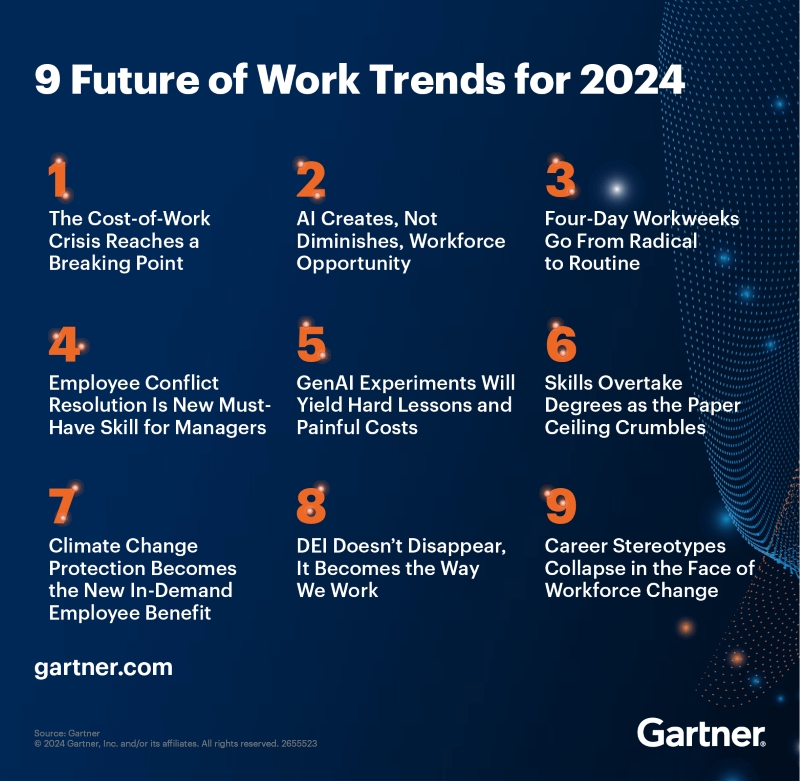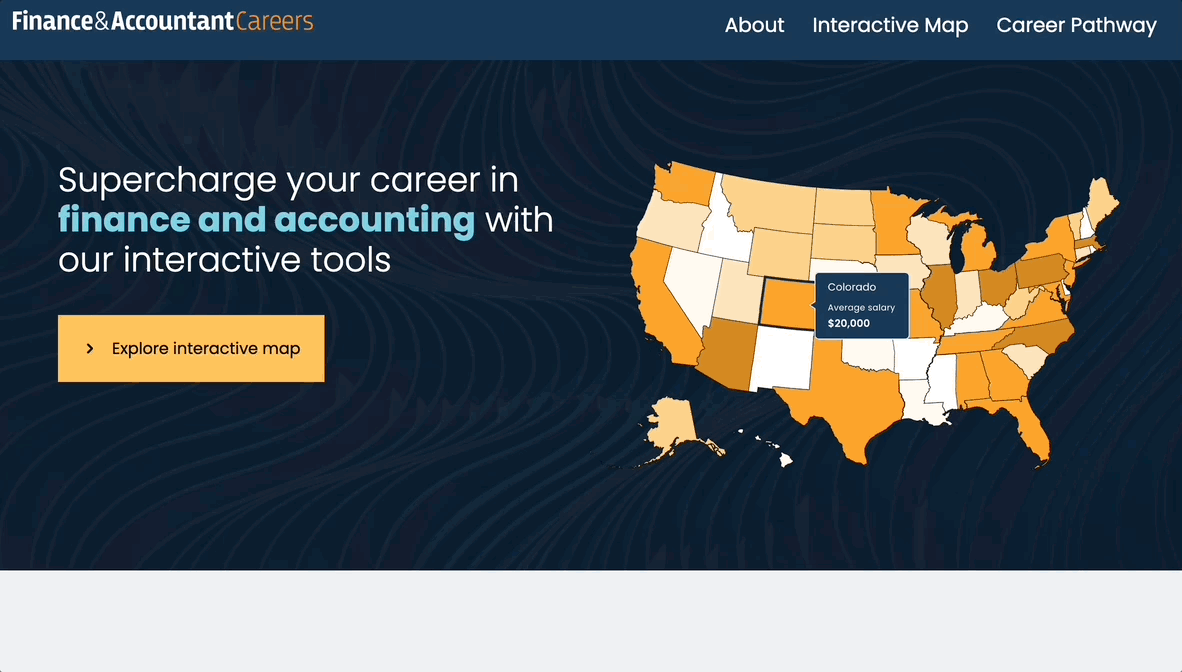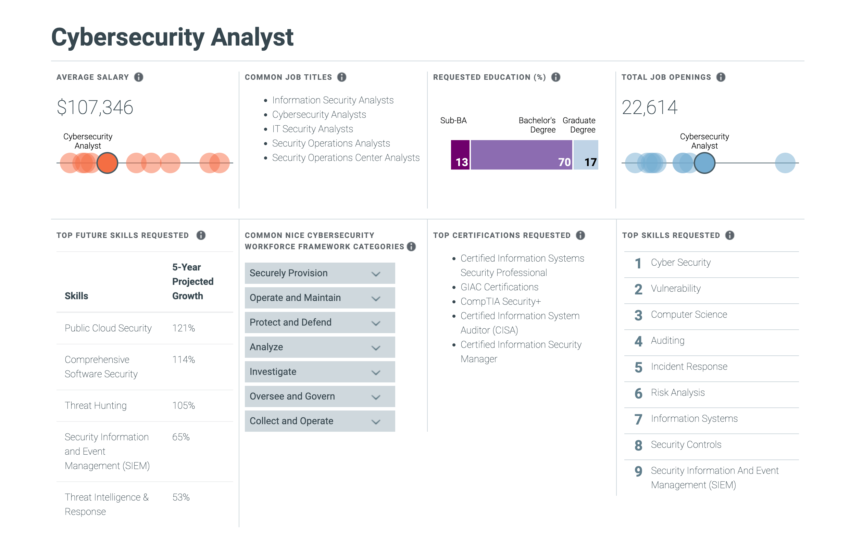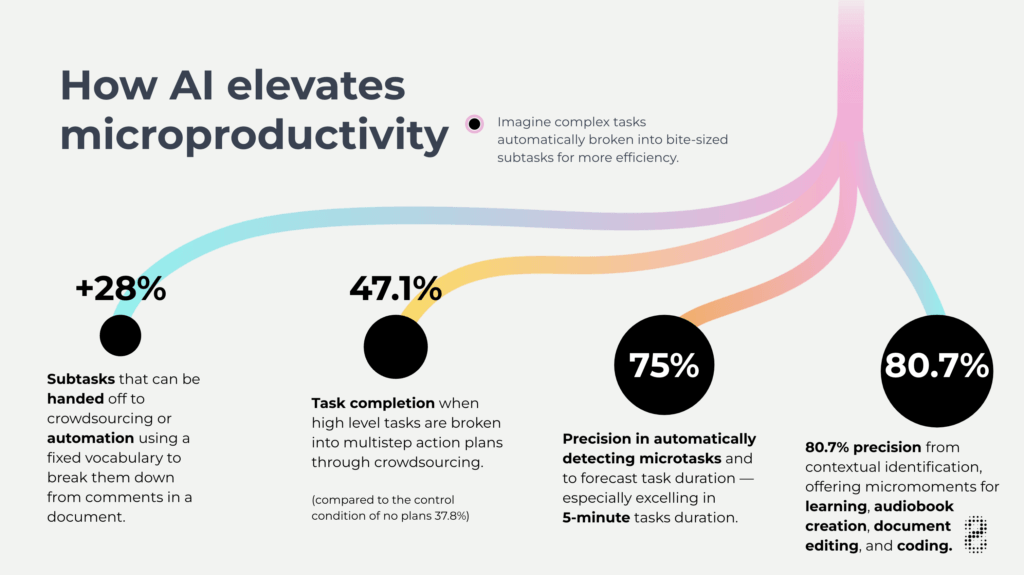 Insight
What does 2024 hold for the future of work?
Insight
What does 2024 hold for the future of work?
Earlier this month, Gartner published their trend forecast for the Future of Work in 2024. Their analysis centred around four key areas:
1. Breaking down career assumptions
2. Changes to the employee value proposition (EVP)
3. New necessities for people managers
4. The reshaping role of AI
Based on our experiences in EdTech, we looked more closely at what the data has to say on each of these core trends.

Image credit: Gartner
1. Challenging career stereotypes
Last November, a career influencer made headlines on TikTok when making the claim that ‘Gen Z don’t want to be managers anymore’. Before spitting your coffee out, there are actually some proof points behind this.
A recent survey of 1,000 Americans by the workplace analytics software company Visier found that less than half (38%) said they aspired to be a manager at their current company.
And, when you read that 90% of children born in 1940s America would go on to earn more than their parents, yet the same was true for just 50% of those born in the 1980s, you start to get the impression that many workers feel they’re being squeezed to work more for less pay. This is especially true for management positions, only with added responsibility and less free time. The claim goes: why aspire to become a manager when pay is stagnated and people are placing more value on their free time?

Our career pathways tool for the Association of Finance Professionals is designed to challenge expectations of what a career in the industry looks like.
The good news, in the US at least, is that it’s not the same for every employer. In fact, the American Opportunity Index reveals that corporate practice matters a lot. The Index highlights that workers at top-performing companies are 2.5 times more likely to receive promotions. And they are paid, on average, 68% more for the same jobs.
2024 prediction: Where you work is just as important and the job you do.
2. Responding to new employee value asks
It does feel like the shift towards a four-day work week will become a new standard in 2024.
Last year, infogr8 trialled our own four-day week. Well, 4.5 days. The 0.5 day was set aside for our new initiative, FutureFridays. A time for us to concentrate on being creative with data, without the boundaries of a client brief.
More generally, a shorter working week is a popular benefit that many would like to see introduced in their workplace. In fact, 81% of those polled by the Trades Union Congress in the UK in 2018 wanted shorter work weeks, while 83% of those surveyed by Reed on LinkedIn in 2021 were in favour of a four-day week. In the US, a 2019 YouGov poll found that 67% of people would prefer a four-day week with 10-hour days to a five-day week with eight-hour days.

And there have been some major successes, too:
– In Iceland, worker wellbeing and work-life balance increased between 2015 and 2019.
– In New Zealand, absenteeism dropped by 34%, while revenue grew.
– In Belgium, employees recently won the right to work a full week in four days with no loss of salary.
Closer to home, the UK ran a trial in 2022, the 4 Day Week Pilot Program, heralded as the biggest ever. Its key findings include:
– Most companies said business performance and productivity were maintained, despite the shorter hours.
– Revenue stayed the same (and actually rose by 1.4%, on average).
– 56 out of the 61 participating companies decided to continue with the four-day week after the trial, with 18 deciding to continue permanently.
2024 prediction: The introduction of generative AI (through Bard, OpenAI and more) will boost productivity, enabling widespread adoption of shorter working hours.
3. Levelling up people management skills
“A generation ago, the half-life of a skill was about 26 years, and that was the model for a career. Today, it’s four and half years and dropping.” These are the words of Indranil Roy, head of Deloitte’s Future of Work Centre of Excellence.
In the World Economic Forum’s job report of 2023, the top 5 skills for workers were listed as analytical thinking, creative thinking, resilience, motivation and self-awareness, and curiosity and lifelong learning.
You would be forgiven for thinking they’re all fairly generic. But the point is that skills and competencies are ever evolving, and this is increasing at the rate that new technologies are evolving.
In the UK, the NFER has done research into the skills likely to be most in demand in 2035. They found that: “Whilst specialist skills and knowledge are vital in most occupations, it is transferable ‘essential employment skills’ that will be in greatest demand across the labour market in 2035.”
The most vital ‘essential employment skills’, anticipated to be most in-demand by employers in the future, according to NFER, are:
1. Communication
2. Collaboration
3. Problem-solving
4. Organising, planning & prioritising work
5. Creative thinking

CyberSeek presents the user with data points on specific skills required per occupation.
2024 prediction: Workers focus on skills adaptability to stay ahead of the curve.
4. Feeling the full force of generative AI
The shift in focus for employers this year will be towards AI. Not just artificial intelligence, but actual intelligence.
There’s no denying AI’s potential impact on productivity and creativity, but used incorrectly it will only yield diminishing returns. Instead, organisations will focus more on seeing AI for what it is, a tool to complement existing workflows.

Our reskinned version of Microsoft’s rather dry and dusty New Future of Work Report.
Microsoft’s annual New Future of Work Report focused pretty much primarily on Gen-AI in the form of large language models (LLMs). Here are four benefits of note.
– LLMs for critical thinking: LLMs can help us tackle complex tasks by provoking critical thinking, enabling micro-productivity, and shifting the balance of skills.
– LLMs for complex and creative tasks: LLMs can support complex and creative tasks by, for instance, enhancing metacognition.
– LLMs for different domains of work: LLMs will focus specifically on software engineering, medicine, social science, and education.
– LLMs for team collaboration and communication: LLMs can help teams improve interaction, coordination, and workflows by providing real-time, retrospective feedback and leveraging more holistic frameworks.
2024 prediction: This will be a moving year for AI in terms of actual application day-to-day.
